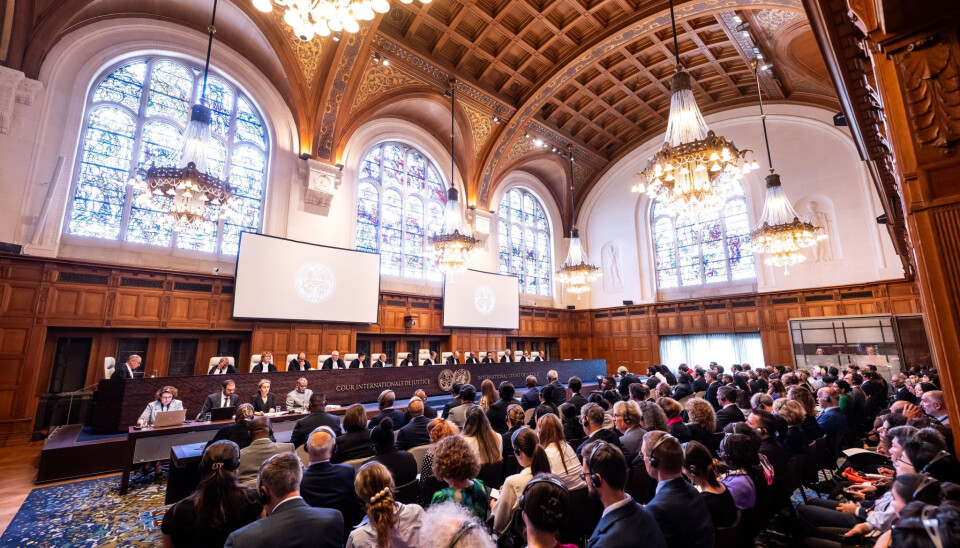Copyright : Re-publication of this article is authorised only in the following circumstances; the writer and Africa Legal are both recognised as the author and the website address www.africa-legal.com and original article link are back linked. Re-publication without both must be preauthorised by contacting editor@africa-legal.com
African leaders must heed historic ‘World Court’ opinion and take action to address climate crisis

In a landmark decision yesterday afternoon, the International Court of Justice (ICJ) ruled UN Member States have an obligation to protect the environment from climate change, and if they breach such obligations they incur legal responsibility and may be required to make full reparations in certain circumstances
While yesterday’s much-anticipated International Court of Justice (ICJ) ruling is non-binding, its moral and legal authority will be pivotal in shaping climate jurisprudence worldwide, and should mark a turning point for African courts and political leaders, alongside the wider international community, says the African Climate Platform, supported by the Pan African Lawyers Union (PALU).
Yesterday afternoon in The Hague, the ICJ’s President, Judge Iwasawa Yuji delivered the Advisory Opinion on States Obligations in Respect of Climate Change.
In a rare unanimous judgement, the ICJ ruled that climate change was “an urgent, existential threat”, that states must prevent climate harm, that failure to prevent climate harm could result in states having to make restitution including paying compensation, and that states were legally liable for the actions of the private sector and must regulate corporate activities that contributed to the climate crisis.
Informally known as ‘the World Court’, and the only major United Nations organ based outside New York, the ICJ settles legal disputes between member states and gives advisory opinions on legal questions referred to it by UN bodies and agencies.
"This is a victory for our planet, for climate justice and for the power of young people to make a difference," says UN Secretary-General António Guterres, welcoming the historic ICJ ruling. On Tuesday Guterres had delivered a special address to UN Member States on “the unstoppable global shift to renewable energy”.
The historic case was originally sparked by 27 South Pacific law students, who back in 2019 urged Vanuatu, as an island state disproportionately impacted by climate change, to take up the case as a way to solve the apparent international deadlock on climate change action. It grew into the largest case ever heard by the ICJ.
In December last year, more than 100 nations and international organisations - including the likes of South Africa, Burkina Faso, Cameroon, Cote d’Ivoire, Sierra Leone, Ghana, Kenya, Malawi, Namibia, DRC, Senegal, Gambia, Comoros, and Zambia from the African continent - made oral and written submissions.
The ICJ judges considered tens of thousands of pages of written submissions on top of the two weeks of oral arguments, in what is the World Court’s biggest-ever case.
Yesterday’s ruling was clear, unanimous, and decisive.
The ICJ dismissed the arguments put forward by larger polluting countries, such as the United States, that climate change responsibilities were largely limited to voluntary obligations, international treaties like the Paris Agreement, or that it was impossible to attribute greenhouse gas emissions to individual countries.
Instead, it ruled that a "clean, healthy and stable environment" is a human right grounded in a wide array of international laws and customary rights, and that countries are responsible for regulating the emissions of private companies.
The ICJ advisory opinion should provide a foundational legal framework that African courts, including the African Court on Human and Peoples' Rights (AfCHPR) can rely upon to hold governments and multinational companies accountable, said the African Climate Platform (ACP) yesterday. The ACP is a coalition of more than fifty civil society organisations, indigenous groups, and climate activists, in partnership with PALU, from all across West, East, Central, Southern, and North Africa.
“By affirming the gravity of climate injustice, the ICJ can catalyse stronger judicial enforcement of climate policies across the continent,” says the ACP. “We call upon African leaders, the African Union, and the international community to take immediate, concrete steps to support the push back against the climate crisis.”
Speaking outside the court in the Hague yesterday, Ralph Regenvanu, Vanuatu’s Minister for Climate Change, called the ruling a milestone for climate justice.
“It has confirmed what vulnerable nations have been saying and have known for so long, that states do have legal obligations to act on climate change,” he said, while noting that the ICJ’s 140-page ruling would become a vital tool in upcoming climate negotiations, and that the decision was likely to inspire new lawsuits.
Similarly to the Pacific Islands nations that initially brought the climate change case to the ICJ, Africa faces severe climate impacts, despite the entire continent (the second most populous on earth, behind Asia, with nearly 20% of the global population), contributing less than 4% to global greenhouse gas emissions.
The ICJ’s advisory opinion must mark a turning point, where “legal, policy, and human rights frameworks finally align with scientific and ethical imperatives to secure a liveable future for all”, says the ACP, which is committed to leverage the ICJ ruling in its pursuit of climate justice, in both regional and international forums.
You can read the full ICJ advisory opinion, here.
